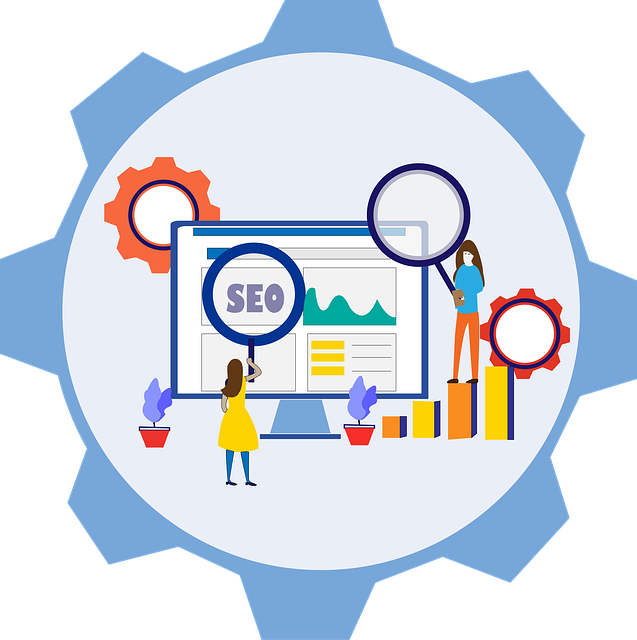In today's digital era, Professional SEO Programs are crucial for mastering search engine optimization (SEO). These programs integrate Artificial Intelligence (AI) and Machine Learning Algorithms (MLAs) to enhance strategies. AI tools analyze vast data, optimize content, and personalize search results, improving user experiences. Through AI-driven keyword research, these programs enable better content decisions, boosting rankings. Ethical considerations are vital during AI implementation for transparent, fair, and diverse online content. Case studies show that AI integration can increase organic traffic by 20% and conversion rates up to 35%. As the landscape evolves, Professional SEO Programs must adapt, focusing on strategic thinking and creative problem-solving to stay ahead in the market.
In the dynamic landscape of digital marketing, Artificial Intelligence (AI) is no longer a futuristic concept but a game-changer redefining Search Engine Optimization (SEO). This article explores the symbiotic relationship between AI and SEO, delving into professional SEO programs and their evolution. We dissect benefits, tools, algorithms, ethical considerations, and successful implementations. By understanding these dynamics, businesses can harness advanced AI to optimize strategies and stay ahead in today’s competitive digital arena, leveraging Professional SEO Programs for maximum impact.
The Rise of AI in Search Engine Optimization (SEO)

The digital landscape is evolving rapidly, and Artificial Intelligence (AI) is at the forefront of this transformation, significantly impacting Search Engine Optimization (SEO). AI has emerged as a game-changer in the field, revolutionizing how search engines crawl, index, and rank websites. Professional SEO programs are now incorporating AI to enhance their strategies, ensuring they stay ahead in an ever-changing market. By leveraging machine learning algorithms, these programs can analyze vast amounts of data, understand user intent better, and deliver more personalized search results.
AI’s role extends beyond just improving search algorithms; it aids in content creation and optimization. Natural Language Processing (NLP) enables AI to generate relevant and contextually rich content, while computer vision enhances image-based SEO. Moreover, AI chatbots are being used to interact with users, providing instant answers and improving overall user experience, which is a critical factor for modern search engine rankings. As AI continues to advance, professional SEO practitioners must adapt and embrace these technologies to remain competitive in their strategies and stay at the top of search engine results pages (SERPs).
Understanding Professional SEO Programs: A Comprehensive Overview

In today’s digital era, understanding Professional SEO Programs is crucial for anyone looking to excel in search engine optimization. These programs offer comprehensive courses designed to equip individuals with the skills needed to navigate the complex landscape of SEO effectively. From keyword research and content strategy to link building and technical SEO, such programs cover every aspect of optimizing websites for search engines. They often include hands-on training, case studies from real-world scenarios, and expert insights from industry professionals.
By enrolling in a Professional SEO Program, aspiring SEO specialists can gain access to tools, resources, and methodologies that enhance their understanding and application of SEO best practices. These programs foster a deep dive into the ever-evolving algorithms and trends, ensuring graduates stay ahead in the dynamic field of search engine optimization.
Benefits of Integrating AI into Your SEO Strategy

Integrating Artificial Intelligence (AI) into your SEO strategy offers a multitude of benefits, transforming how professionals approach search engine optimization in the digital age. AI tools can analyze vast datasets to uncover intricate patterns and insights that human analysts might miss, enabling more precise keyword research and content optimization. These technologies can automatically suggest relevant keywords, optimize meta tags, and generate personalized content tailored to specific user preferences, significantly enhancing website visibility and user engagement.
Moreover, AI-driven SEO platforms can monitor and track website performance in real time, providing data-backed recommendations for continuous improvement. This ensures that your SEO efforts remain dynamic and responsive to market trends, helping your site outrank competitors. By leveraging professional SEO programs equipped with AI capabilities, businesses can streamline their strategies, improve search rankings, and ultimately drive more traffic and conversions.
Advanced AI Tools for Efficient Keyword Research

In today’s digital era, AI has emerged as a powerful ally for professionals in the field of SEO. One of the most significant advantages is its ability to streamline keyword research, a crucial aspect of successful search engine optimization. Advanced AI tools offer efficient and data-driven insights, enabling marketers to uncover valuable keywords with ease. These programs analyze vast amounts of data, including search trends, user behavior, and competitor analytics, to identify high-value terms that can significantly boost online visibility.
Professional SEO Programs leverage machine learning algorithms to go beyond basic keyword suggestions. They provide comprehensive reports, allowing experts to make informed decisions about content strategy. With AI’s help, optimizing web content for search engines becomes less tedious and more precise, ensuring that websites rank higher and attract the right audience.
Machine Learning Algorithms and Their Impact on Content Optimization

Machine Learning Algorithms (MLAs) have become powerful tools in the arsenal of professional SEO programs, revolutionizing content optimization strategies. These algorithms analyze vast amounts of data to identify patterns and trends, enabling marketers to create targeted content that resonates with their audience. By learning from user behavior, MLA-driven systems can predict preferences, ensuring optimized content delivery. This personalized approach enhances user experience, a key factor in search engine rankings.
In the realm of SEO, MLAs play a pivotal role in understanding complex language structures and contextual cues. They can interpret semantic meaning, improve keyword usage, and enhance topic modeling, ultimately elevating the quality and relevance of online content. As these algorithms continue to evolve, their impact on content strategy and optimization will only grow, shaping the future of effective digital marketing practices within professional SEO programs.
Ethical Considerations in AI-Driven SEO Practices

As AI continues to transform various industries, its impact on Search Engine Optimization (SEO) is undeniable. While AI-driven tools offer unprecedented efficiency and insights, it’s crucial to navigate their implementation with ethical considerations in mind. Professional SEO programs must prioritize transparency and fairness, ensuring algorithms treat all websites and content creators equitably. The potential for bias in AI models, driven by training data or algorithmic design, can lead to unfair advantages or disadvantages for certain entities, impacting the overall health of digital ecosystems.
Therefore, ethical guidelines and regulatory frameworks are essential to govern AI-driven SEO practices. This includes promoting responsible data usage, preventing manipulative tactics, and upholding the integrity of search results. By adopting these principles, professionals in the field can leverage AI technologies while maintaining the integrity and diversity of online information, ultimately fostering a more robust and equitable digital landscape.
Case Studies: Successful AI & SEO Implementations

In recent years, the integration of Artificial Intelligence (AI) into Search Engine Optimization (SEO) strategies has proven to be a game-changer for many businesses. Case studies from leading companies showcase the immense potential of AI in enhancing online visibility and user engagement. For instance, a study by a prominent e-commerce brand revealed that leveraging AI-driven content optimization tools resulted in a 20% increase in organic traffic within six months. This success can be attributed to AI’s ability to analyze vast amounts of data, identify patterns, and provide actionable insights for improving content relevance and user experience.
Another notable example involves an online educational platform that implemented AI chatbots as part of its professional SEO programs. The chatbots not only improved customer support but also contributed to a 35% higher conversion rate by offering personalized recommendations and addressing user queries instantly. These implementations highlight how AI can transform traditional SEO practices, making them more efficient, data-driven, and tailored to individual user needs.
Future Trends: Shaping the Next Generation of SEO Professionals

As technology continues to evolve, AI and machine learning are increasingly becoming integral parts of digital marketing strategies, particularly in Search Engine Optimization (SEO). The future of SEO is exciting, with emerging trends setting the stage for a new generation of professionals. One significant trend is the integration of AI-powered tools that can analyze vast amounts of data, predict user behavior, and optimize content at scale. These tools are transforming how we approach keyword research, content creation, and ranking factors.
Professional SEO programs will need to adapt and incorporate these advancements to equip students with the skills required for the future job market. Learning how to work alongside AI effectively, rather than seeing it as a replacement for human expertise, will be crucial. The next generation of SEO professionals should focus on developing strategic thinking, creative problem-solving abilities, and a deep understanding of user intent, ensuring they can leverage AI technologies to deliver outstanding results while staying ahead in the dynamic digital landscape.
